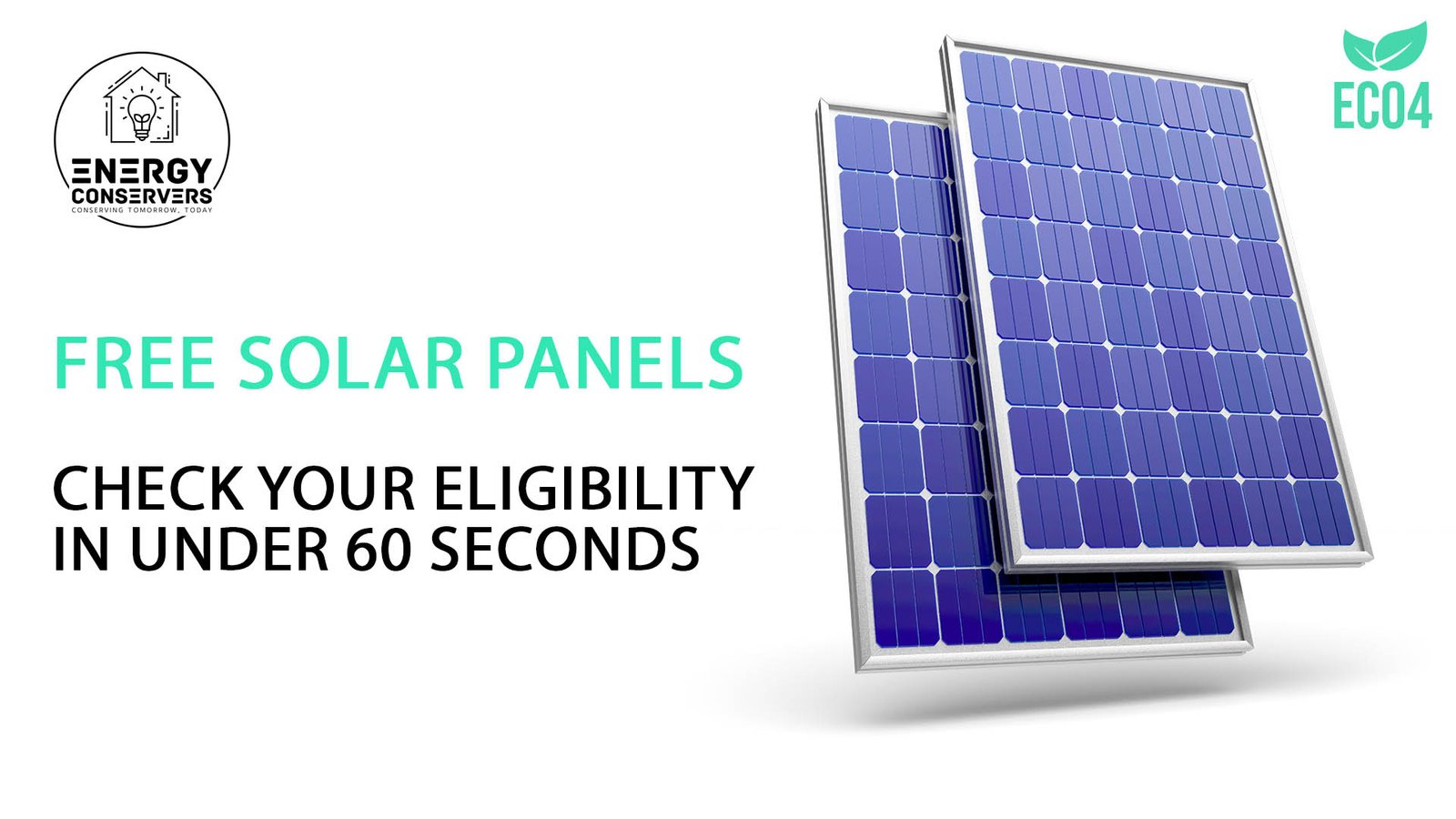

Apply
Fill out our online application form and go through a simple evaluation to see if you qualify for any government funding. Our internal grants team will then evaluate your application.

Survey
Following your successful application, we will arrange a free, no obligation survey to ensure the maximum grant is obtained and advise you on the best products to reduce your homes energy usage.

Installation
The installation of your chosen products will be carried out by our experienced and local engineers at a time that suits you. All of our installations are approved & adhere to all government guidelines.
Why are households switching to solar panels?
Solar Panels & Grants
Solar Panel Grants – ECO4 scheme
The Energy Company Obligation (ECO) scheme has been in operation since 2013 and has helped many people reduce their energy bills and improve their homes’ energy efficiency. It provides free or discounted energy-saving measures to low-income and vulnerable households and those living in fuel poverty.
To date ECO has installed over 3.1 million energy efficiency measures in over 2.3 million homes, saving households an average of £1000 per year on their energy bills. The ECO is currently in its fourth phase (ECO4), which began in July and will continue until 2026. The UK government has committed £1 billion per year to the initiative.
What is the difference between ECO3 and ECO4?
The ECO3 and ECO4 schemes are very similar. However, the ECO4 program seeks to remove obligation thresholds and replace it with a buy-out mechanism. This means that any household or business that meets the criteria for the scheme will be eligible for funding, regardless of their income or whether they receive certain benefits.
The government has announced that it is removing some benefits that were previously available under ECO3 to better target low-income households. The benefits being removed include:
- Severe Disablement Allowance
- Disability Living Allowance (DLA)
- Carer’s Allowance
- Industrial Injuries Disablement Benefit
- Attendance Allowance
- Constant Attendance Allowance
- Personal Independence Payment (PIP)
- Armed Forces Independence Payment
- Mobility Supplement
- War Pensions
How do you qualify for a solar panel grant through ECO 4?
Under the ECO4 scheme solar panel grants are available to homeowners, landlords and tenants looking to reduce their energy bills. Grants are available up to install solar panels as well as other renewable technologies.
ECO4 is available to:
- Homeowners, landlords and private tenants
- Households with inefficient electric heating
- Households receiving income related benefits
Qualifying benefits under the ECO4 scheme are as follows:
- Child tax credit
- Income support
- Income based jobseekers allowance
- Income related employment and support allowance
- Pension credit guarantee
- Universal credit
- Working tax credit
- Child benefit*
*If you claim child benefit and this is the only benefit you receive. The threshold amounts are set below:
- A single adult with 1 child: £19,900
- A single adult with 2 children: £24,800
- A single adult with 3 children: £29,600
- A single adult with 4 or more children: £34,500
- Couple with 1 child: £27,500
- Couple with 2 children: £32,300
- Couple with 3 children: £37,200
- Couple with 4 or more children: £42,000



